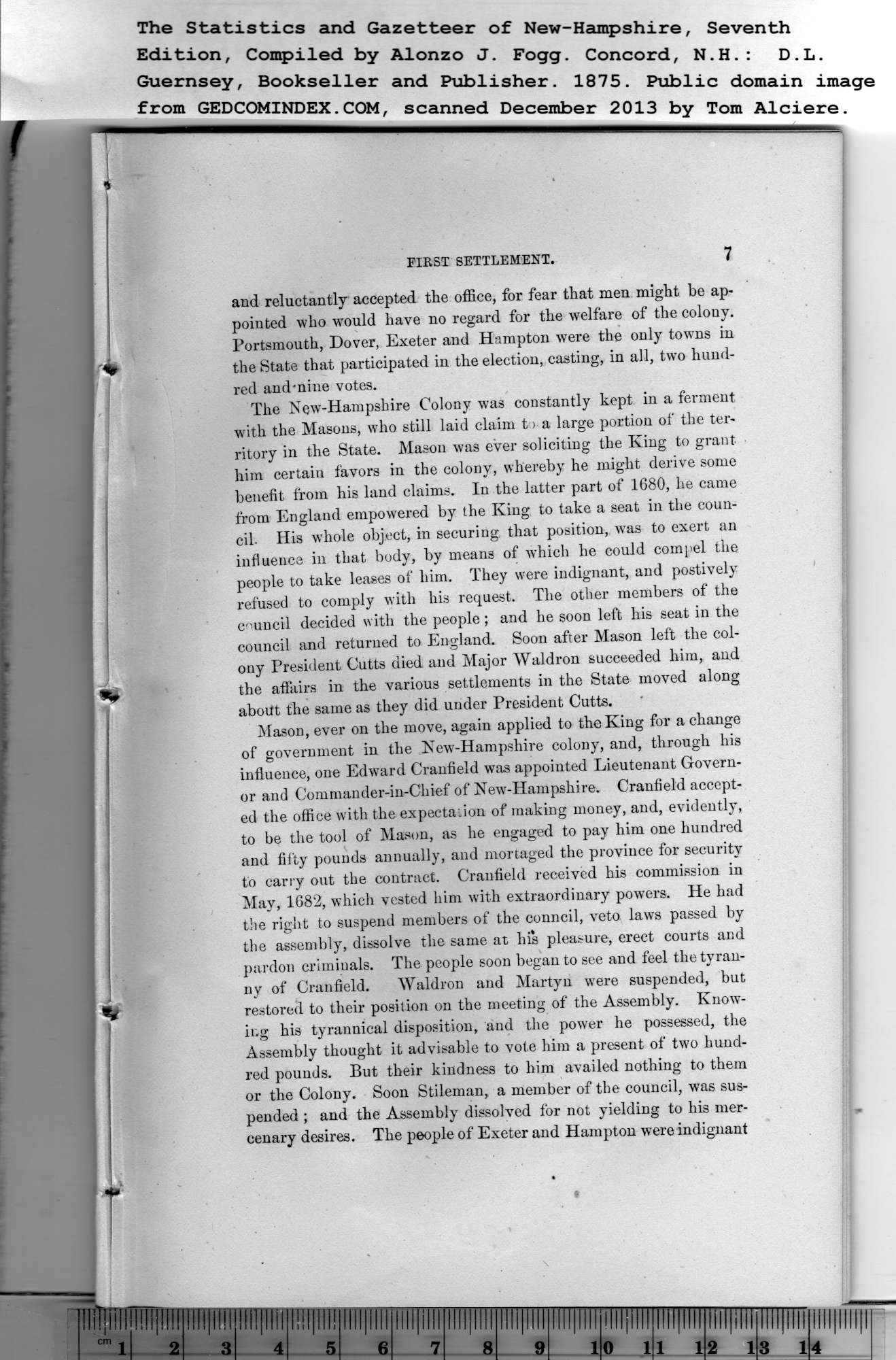|
FIRST SETTLEMENT. 7
and reluctantly accepted the office, for fear that men might be ap-
pointed who would have no regard for the welfare of the colony.
Portsmouth, Dover, Exeter and Hampton were the only towns in
the State that participated in the election, casting, in all, two hund-
red and nine votes.
The New-Hampshire Colony was constantly kept in a ferment
with the Masons, who still laid claim to a large portion of the ter-
ritory in the State. Mason was ever soliciting the King to grant
him certain favors in the colony, whereby he might derive some
benefit from his land claims. In the latter part of 1680, he came
from England empowered by the King to take a seat in the coun-
cil. His whole object, in securing that position, was to exert an
influence in that body, by means of which he could compel the
people to take leases of him. They were indignant, and postively
refused to comply with his request. The other members of the
council decided with the people; and he soon left his seat in the
council and returned to England. Soon after Mason left the col-
ony President Cutts died and Major Waldron succeeded him, and
the affairs in the various settlements in the State moved along
about the same as they did under President Cutts.
Mason, ever on the move, again applied to the King for a change
of government in the New-Hampshire colony, and, through his
influence, one Edward Cranfield was appointed Lieutenant Govern-
or and Commander-in-Chief of New-Hampshire. Cranfield accept-
ed the office with the expectation of making money, and, evidently,
to be the tool of Mason, as he engaged to pay him one hundred
and fifty pounds annually, and mortaged the province for security
to carry out the contract. Cranfield received his commission in
May, 1682, which vested him with extraordinary powers. He had
the right to suspend members of the conncil, veto laws passed by
the assembly, dissolve the same at his pleasure, erect courts and
pardon criminals. The people soon began to see and feel the tyran-
ny of Cranfield. Waldron and Martyn were suspended, but
restored to their position on the meeting of the Assembly. Know-
ing his tyrannical disposition, and the power he possessed, the
Assembly thought it advisable to vote him a present of two hund-
red pounds. But their kindness to him availed nothing to them
or the Colony. Soon Stileman, a member of the council, was sus-
pended ; and the Assembly dissolved for not yielding to his mer-
cenary desires. The people of Exeter and Hampton were indignant
PREVIOUS PAGE ... NEXT PAGE
This page was written in HTML using a program written in Python 3.2
|
